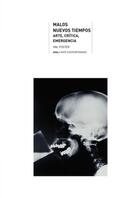
This book examines the evolution of art and criticism in Western Europe and North America over the past twenty-five years, exploring its dynamic relationship to the general condition of emergency brought about by neoliberalism and the war on terror.
Considering the work of artists such as Thomas Hirschhorn, Tacita Dean, and Isa Genzken, and the writings of thinkers such as Jacques Rancière, Bruno Latour, and Giorgio Agamben, Hal Foster reveals the ways in which art has anticipated this condition, sometimes resisting the collapse of the social contract or aiming at its repair; in others, parodying it.
Against the claim that art has reached such a degree of heterogeneity that it defies historical analysis, Foster argues that the critic has yet to write a clearly articulated account of the contemporary in all its complexity. To this end, he offers various paradigms of the a...read more





